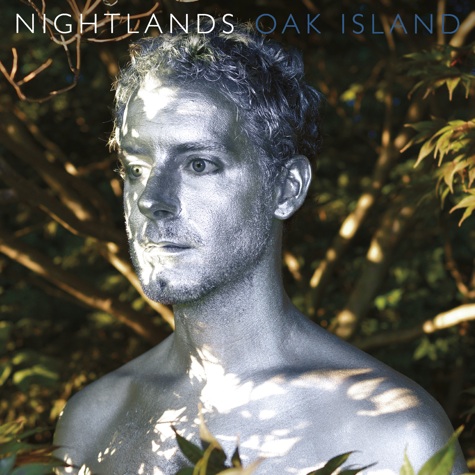David Hartley knows how to put a high-gloss shine on his music. Oak Island, his debut album as Nightlands, revels in the absolute pop veneer that comes from a lifetime obsession with ’60s and ’70s AM classics, as well as the compressed, synth pop of the ’80s. His chrome-plated melodies seem to effortlessly slide from his mouth, each note perfectly aligned with the next, just waiting for its time to slip out. In fact, the record sounds so good that his apparent perfectionism could have come off as simply another pop affectation if the songs themselves weren’t so well-constructed and so thoroughly memorable. Equal parts vocodered vocals and gorgeous orchestral pop arrangements, Oak Island sounds like the illegitimate bastard of ELO and Van Dyke Parks, and Hartley manages to make it work despite the fact that it probably shouldn’t. The same sort of working-man authenticity that he displays with his other band, The War On Drugs, is methodically shifted here into a cold, metallic processional, so evocative of bleary-eyed ’80s overindulgence — the kind of luxurious studio sounds that Dan Bejar managed to corral on the last Destroyer record.
“Time & Peace” opens the album with a simple overture from Hartley: “I’d like to invite you/ for just a little while/ for just a little while/ to a place I used to go/ when I was only seventeen…” Amid swirling orchestral tuning, his voice peers out from some ephemeral place — a calm and welcoming presence. Gliding gracefully from note to note, the melody is reminiscent of something that Ultravox would have produced in the early ’80s — most likely for Vienna. A thumping percussion then builds behind the vocals and leads us into the present, where horns and vocoders reign supreme. But by injecting the proceedings with some semblance of heart and feeling, the tendency to associate the mechanized vocals and atonal horns with a sense of frigidity and emotional distance is thankfully side-stepped. We’re led into “So Far So Long” on a wave of horns and subtle electronic ambiance. Hartley’s voice, devoid of mechanization save for a bit of restrained echo, watches over the instrumentation like some benevolent caretaker. Oak Island is a musical Tin Man, all metallicized superficiality but with a strong heart just biding its time to burst forth.
Nowhere is this more evident than on the Morricone-esque thrum of “Nico.” Combining acoustic guitar and clattering percussion — and feeling distinctly western–Hartley pitches his vocals into staggered octaves, like he’s inhaling a continuous supply of helium, and allows a chorus of rampant horns to have access to any part of the song they choose. But he knows that the slick studio techniques so evident on Oak Island mean absolutely nothing without a strong creative force to drive them into new and unexpected avenues of musical expression, so even the parts of his songs that feel loose and uninhibited are actually carefully constructed for maximum effect. Nothing is left to chance, despite the light-hearted nature of most of these songs. You can hear this conscious duality on album stand-out “I Fell In Love With A Feeling,” where Hartley uses the juxtaposition of glistening vocals and velvet-lined melodies with bitter lyrics about drug addiction and irrational urges to create a jarring intervention of sorts for the seemingly restless indulgence of the music.
There is restraint here though — to think otherwise would be to discredit Hartley’s meticulous studio craftsmanship. There are moments however when this attention to detail can cause the music to sound a shade too similar for its own good. But by and large, any sense of assumed sterility or possible musical homogenization is quickly lost among the gorgeous melodies and thoughtful arrangements that Hartley manages to coax from his instruments. There is an oddly beguiling grace to Oak Island that seems to stretch casually across the 30-odd minutes of music here. For an album so indebted to technology and extravagance, there is never a point where either aspect commandeers the music to any significant degree. Even tracks like “Looking for Rain” and “So It Goes,” for all their synth-y, chromatic soliloquies, feel lively but impatient—chomping at the bit for just a little more room to run. And sometimes you get the feeling that Hartley might have been afraid of really cutting loose and throwing more humanism into the songs, lest that sense of perfection he so carefully cultivated be diluted. But what we have is Oak Island, an album of pristine beauty and shimmering harmonic structure. Van Dyke Parks and ELO would be proud, I’m sure.

